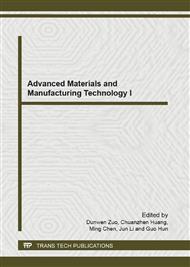p.255
p.260
p.265
p.270
p.275
p.279
p.283
p.287
p.293
Research of Hybrid Congestion Control Mechanism
Abstract:
In wireless sensor networks, congestion causes overall channel quality to degrade and loss rates to raise, leads to buffer drops and increased delays, and tends to be grossly unfair toward nodes whose data has to traverse a larger number of radio hops. Hybrid congestion control mechanisms relieve the congestion by creating the new path; when establishment of a new path is failed, fairness aggregate mechanisms limits forward rate, ensures that each source node sends data fairly. Based on energy-saving, algorithms for mild congestion have been improved.
Info:
Periodical:
Pages:
275-278
DOI:
Citation:
Online since:
January 2012
Authors:
Keywords:
Price:
Сopyright:
© 2012 Trans Tech Publications Ltd. All Rights Reserved
Share:
Citation:


